PERCEPTIONS OF ORGAN DONATION AMONG MUSLIMS IN SINGAPORE: ETHICAL AND JURISPRUDENTIAL CONSIDERATIONS
Organ donation has become increasingly important in today's fast-paced medical world, both from a medical and social perspective. With significant advances in regenerative medicine and organ transplantation, the importance of this field continues to grow. Organ donation is not merely a medical procedure; it represents a humanitarian act of compassion, generosity, and social solidarity.
Thousands of lives can be saved and improved through organ donation, whether from living or deceased donors. For patients facing end-stage organ failure, transplantation is often their only option for survival and a better quality of life. At the same time, families of donors typically take consolation in knowing that their loved ones have given others a second chance at life.
Beyond individual impact, organ donation helps to enhance medical research and education. In Singapore, regulations such as the Medical (Therapy, Education, and Research) Act (MTERA) enable donated organs and tissues to promote scientific advancement and future medical professional training, hence improving healthcare on a larger scale.
This study provides a comprehensive framework for understanding organ donation, highlighting its medical importance, ethical considerations, and broader social implications. It aims to illuminate how this practice reflects and promotes contemporary values of empathy, community, and shared humanity.
RESEARCH OBJECTIVE
This study examines the Islamic legal perspective on organ donation from both living and deceased donors by analysing classical juristic views and contemporary fatwas. It focuses on the stance of Singapore's Islamic Religious Council (MUIS), particularly its position on brain death as a valid criterion for death. The research also evaluates the alignment between Islamic rulings and Singapore’s legal-medical framework, especially the Human Organ Transplant Act (HOTA). Additionally, it aims to address common misconceptions among Singaporean Muslims regarding the religious permissibility of organ donation, highlighting the ethical and jurisprudential principles guiding Islamic responses to complex medical issues.
RESEARCH PROBLEM
There is widespread confusion among Singaporean Muslims about the religious stance on organ donation, largely due to limited awareness and education. This is further complicated by ethical concerns over bodily sanctity and debates around brain death in Islamic law. The lack of understanding of MUIS fatwas and legal provisions under HOTA adds to the uncertainty. These issues underscore the need to clarify how Islamic legal maxims—such as harm prevention and public interest—apply in modern medical contexts like organ transplantation.
RESEARCH METHODOLOGY
A mixed-methods approach is adopted. The qualitative component involves analysing classical Islamic legal texts and contemporary fatwas, particularly those issued by MUIS, alongside Singapore's Human Organ Transplant Act. The quantitative element comprises a survey titled “Perceptions of Organ Donation Among Muslims in Singapore”, which collects data on community knowledge, attitudes, and concerns. This integrated method provides a comprehensive understanding of the religious, legal, and social dimensions of organ donation in the Singaporean Muslim context.
AN ISLAMIC VIEW ON ORGAN DONATION
The general Islamic ruling on organ donation, is permissible based on the Quran’s emphasis on the sanctity of life as mentioned in the Quran, and whoever saves a life, it will be as if they saved all of humanity (Al-Maidah: 32). Additionally, the permissibility is grounded in the Islamic legal principle of removing harm and suffering (الضرر يزال) and the concept of prioritising the greater good (Maslahah). Donation from living donors is allowed if it doesn’t cause harm, and from deceased individuals with prior consent, viewed as continuous charity (sadaqah jariyah).
This research examined the Fatwa by the Islamic Religious Council of Singapore (MUIS) regarding the Human Organ Transplant Act (HOTA), which permits Muslim participation in organ donation. The Fatwa emphasizes Islam’s encouragement of medical treatment and considers transplantation a compassionate, life-saving act. MUIS also supports HOTA’s “opt-out” system, as it respects individual consent while acknowledging religious sensitivities.
DATA ANALYSIS AND RESEARCH RESULTS
Survey findings reveal that while most Singaporean Muslims view organ donation as a good deed aligned with Islamic principles, a notable minority remain uncertain—mainly due to limited knowledge of religious rulings. Concerns include the sanctity of the body after death, lack of family discussions, and a need for clearer guidance from religious authorities. The study recommends seeking religious education, open family conversations, and greater awareness efforts from religious institutions.
Key influencing factors include:
- Religious and Jurisprudential Background: MUIS has evolved its stance—from initially prohibiting organ donation in 1973 to issuing a 2007 fatwa that allowed Muslims to be included in HOTA by default, with the option to opt out. This aligns presumed consent with Islamic principles and the Sharīʿah objective of preserving life.
- Social and Cultural Influences: Beliefs about bodily integrity, misconceptions about brain death, and perceived conflicts with Islam contribute to hesitation. Many prefer returning to God “as He created them” and seek clear religious rulings before deciding.
- Role of Religious Institutions and Awareness: MUIS and MKAC have promoted organ donation through fatwas, workshops, and public education. As a result, Muslim kidney donors rose from 400 in 1990 to over 16,000 in 2004. However, many Muslims remain unaware of its permissibility, indicating the need for continued efforts.
Furthermore, there are common challenges and objections from the ethical and social perceptions of Singaporean Muslims toward organ donation, which include: -
- Religious Misconceptions and Anxiety: Many fear post-death pain, bodily harm, or interference with Islamic funeral rites, reflecting a need for clearer religious education and guidance.
- Legal and Procedural Barriers: Confusion over HOTA opt-out procedures, language issues, lack of legal understanding, and family opposition hinder organ donation. Some prefer donations be limited to Muslims or distrust the medical system.
A survey conducted by the research team showed that 36.7% were unsure about the Islamic permissibility of organ donation, 58.2% believed it was allowed, and the rest thought it was not. Notably, 83.7% expressed a desire for more public education and awareness on this topic.
SOLUTIONS
To address confusion and hesitation about organ donation among Muslims in Singapore, researchers propose practical strategies to enhance religious and ethical understanding within the community:
- Promoting Religious Dialogue and Scholarly Engagement: Encourage active involvement of Muslim scholars and religious organisations through educational talks and discussions in mosques and Islamic centres. These initiatives can clarify the Islamic rulings on organ donation based on sound jurisprudence.
- Integrating Organ Donation into Islamic Education: Introduce the topic into Islamic studies curricula to foster early awareness and understanding, especially among youth.
- Developing Culturally Sensitive Educational Materials: Produce brochures, videos, and digital content in multiple languages tailored to the Singaporean Muslim context. These materials should directly address common misconceptions and concerns.
- Collaboration with Healthcare Providers: Equip medical staff with training to engage with Muslim patients and families respectfully and sensitively, acknowledging their cultural and religious values during the donation process.
The researchers also underline the role of government in shaping public perceptions. Transparent communication about donor rights and religious exemptions under HOTA is crucial. Collaboration with MUIS can build public trust, while involving Muslim leaders in policymaking can enhance community inclusivity. Government-supported campaigns featuring Muslim donors and recipients can also humanize the issue and align public messaging with Islamic values. Legal frameworks must uphold religious ethics, informed consent, and the dignity of the human body.
CONCLUSION
Organ donation is both a moral responsibility and a medical necessity. From an Islamic ethical perspective, saving a life is a noble act aligned with Sharīʿah principles such as protecting life and minimizing harm. In Singapore, the compatibility between Islamic rulings and the provisions of HOTA illustrates that religious and secular values can harmoniously coexist.
However, the research revealed ongoing misconceptions and hesitation among Singaporean Muslims, often due to limited religious literacy and a lack of public awareness. Addressing this requires well-rounded educational initiatives, open dialogue between religious and healthcare institutions, and inclusive policy discussions.
By fostering informed consent, promoting religious understanding, and encouraging collaboration across sectors, Muslims in Singapore can make decisions that honor both their faith and their social duty. This approach can also serve as a model for other Muslim minority communities navigating similar issues in multicultural societies.
Authors:
- Nur Zakirah Binte Sazali,
- Aufa Nuhla Binte Muhammad Fazalee,
- Anggun Dalilah Binte Rostan,
- Nurzul Hafizah Diana Putri Zulkifly
About the authors:
Nur Zakirah Binte Sazali, Aufa Nuhla Binte Muhammad Fazalee, Anggun Dalilah Binte Rostan, & Nurzul Hafizah Diana Putri Zulkifly are pursuing their Bachelor's degree in Islamic Revealed Knowledge and Heritage (Fiqh and Usul al-Fiqh) at AHAS, KIRKHS, in the International Islamic University Malaysia.
[As part of Synergised Academic and Student Activities, this article was prepared for the course RKFQ 4315, Qadaya Fiqhiyyah Mu’asirah: Contemporary Juristic Issues at AHAS KIRKHS, IIUM (Sem 2, 2024-2025]
REFERENCES
Human Organ Transplant Act (HOTA) 2007 (English) (2025) Majlis Ugama Islam Singapura from https://www.muis.gov.sg/resources/khutbah-and-religious-advice/fatwa/human-organ-transplant-act--hota--2007--english. Retrieved on 19th May 2025.
Organ Donation: Pass it On (2017) NIH News in Health from https://newsinhealth.nih.gov/2011/03/organ-donation-pass-it. Retrieved on 19th May 2025.
Organ donation | Ministry of Health (2024) Moh.gov.sg. from https://www.moh.gov.sg/seeking-healthcare/organ-donation. Retrieved on 19th May 2025.
Moritsugu, K.P. (2013) ‘The Power of Organ Donation to save Lives through Transplantation’, Public Health Reports, 128(4), pp. 245-246. DOI: 10.1177/003335491312800402
Kash, S. (2024) Everything You Need to Know About Organ Donation in Singapore, Medical Channel Asia from https://medicalchannelasia.com/everything-you-need-to-know-about-organ-donation-in-singapore/. Retrieved on 19th May 2025.
Cleveland Clinic (2023) Organ donation & transplantation, Cleveland Clinic from https://my.clevelandclinic.org/health/treatments/11750-organ-donation-and-transplantation. Retrieved on 19th May 2025.
Disclaimer
The views expressed in this article are the author’s own and do not necessarily mirror Islamonweb’s editorial stance.

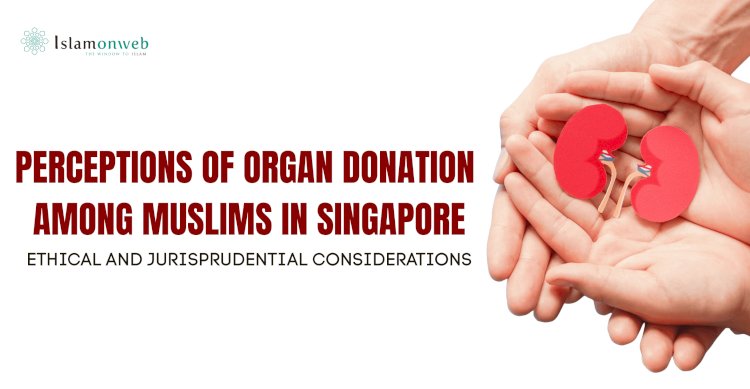


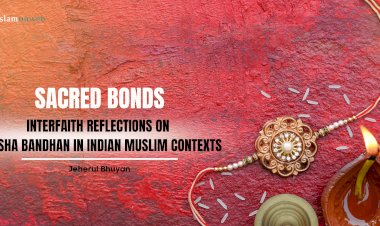
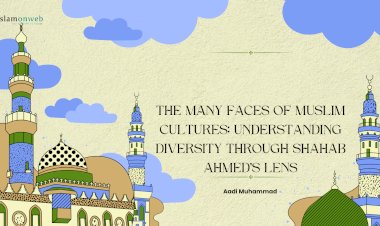

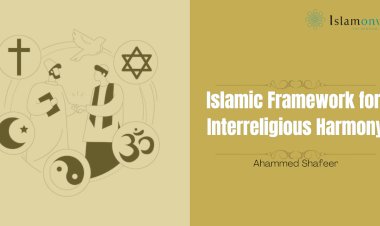
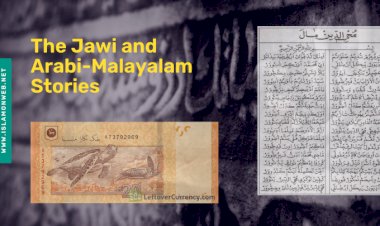
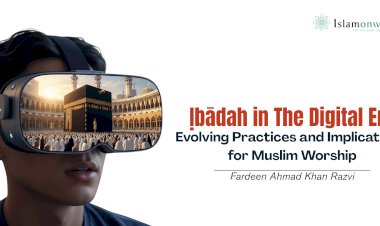














Leave A Comment